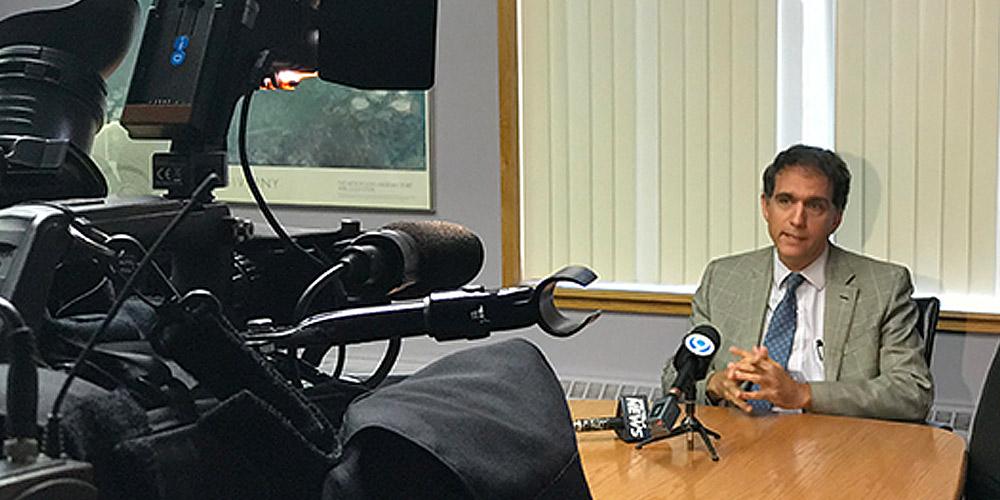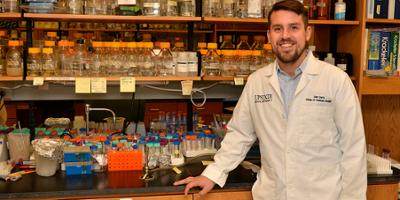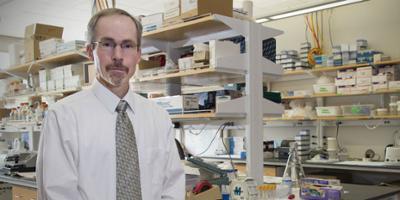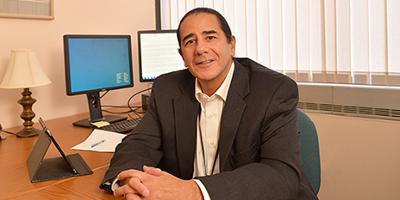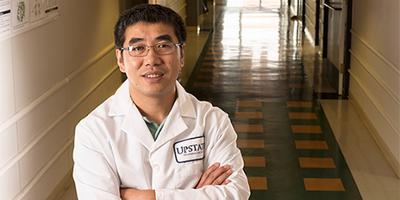Upstate's Psychiatry High Risk Program adds insurers and staff to meet demand
SYRACUSE, N.Y.— A behavioral health program launched last year by Upstate Medical University that specializes in the treatment of youth and young adults (ages 16 to 40) who are at risk for suicide is expanding.
Upstate’s Psychiatry High Risk Program has added three additional caregivers and three insurers to meet the increased demand for services.
When the program opened in March of 2017, POMCO was the only insurer providing payment for services. Now Excellus BlueCross BlueShield has signed on as well Fidelis Care and Molina Care.
Recent staff additions to the program include two licensed clinical social workers, Abigail Riggall, LCSW-R, and Glenn Forsythe, LCSW, and a part-time nurse practitioner, Ann Arezzo, who is a graduate of Upstate’s innovative nurse practitioner psychiatric fellowship program.
Seventy patients have been seen by the program since it began in March 2017.
Reviewin patient data over a three-month period, the program’s director, Robert Gregory, MD, professor of psychiatry, said hospitalizations, self-harming incidents, depression, and drug use have declined, while days of employment increased.
“One of the biggest areas of improvement was for thoughts of suicide, which dropped by more than 50 percent in the first 3 months”, he said. “We are hoping that individuals who are mired in despair will be encouraged by these outcomes. Upstate’s program is meeting its goal of transforming and saving lives.”
The Psychiatry High Risk Program uses a treatment called Dynamic Deconstructive Psychotherapy, which was developed at Upstate by Gregory, to treat borderline personality disorder and other complex behavior problems, such as alcohol or drug dependence, self-harm, eating disorders, and recurrent suicide attempts
The treatment has proven highly effective, demonstrating a 90 percent response rate in separate studies. It is being applied nationally and internationally and has been included on Substance Abuse and Mental Health Services Administration’s National Registry or Evidence-Based Practices and Programs. Upstate is currently the only institution in Syracuse that provides this treatment.
How the program works
Patients call the program and an initial phone screening is completed to determine eligibility and provide information about the program including insurances accepted and out of pocket costs, program requirements and expectations. Patients accepted into the program are seen for individual therapy weekly and participate in other treatment as needed.
The program provides up to 12 months of intensive and comprehensive evidence-based treatment for youths and young adults who struggle with suicidal thoughts and behaviors often requiring hospitalization. Patients accepted into the program complete an initial evaluation and testing which is used to determine the best treatment for each individual patient.
Medication management is also provided on-site with family therapy, group therapy, 12-step, and other supports added as needed. There is careful attention paid to quality control through weekly clinical supervision of therapists, video-recording of sessions as permitted by clients, a comprehensive quantitative assessment procedure, and quarterly outcome assessments, including measures of depression, anxiety, substance use, high risk behaviors, suicidal thoughts, and inpatient/ER utilization.
An impetus for launching this program, according to Gregory, was to address the lack of access to quality psychiatric care and the increased risk of suicide for a most vulnerable population. “Sometimes, patients sit in hospital emergency rooms or a regular pediatric floor hospital bed for up to a week waiting for an inpatient psychiatric bed because appropriate outpatient treatment is not available”, he said.
Warning signs of suicide can be talking about feeling hopeless or having no purpose; cutting or other self-harm behaviors; acting anxious, agitated or reckless; withdrawing or feeling isolated, among other symptoms.
The Psychiatry High Risk Program is in Suite 217, 600 E. Genesee St., Syracuse.
Caption: Robert Gregory, MD, director of the Pyschiatry High Risk Program, speaks to media about the program’s expansion.

